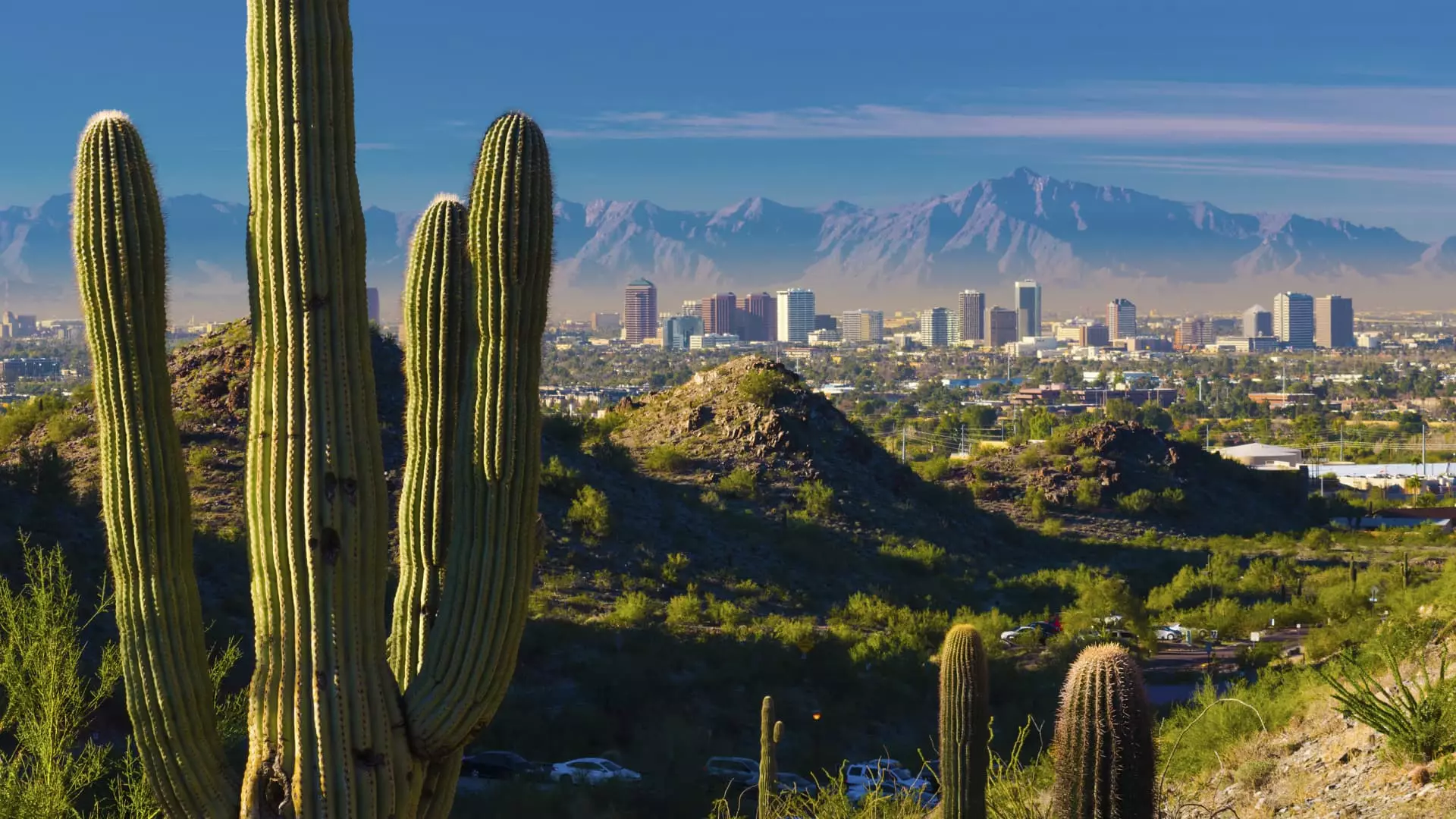When one imagines Phoenix, Arizona, the vibrant golf courses and the famous Spring Training for Major League Baseball often come to mind. However, there is an evolving narrative in the Valley of the Sun: the emergence of the city as a significant player in the technology arena. Over recent decades, Phoenix has steadily redefined itself, unveiling its capabilities in semiconductor manufacturing and paving the way for the testing of autonomous vehicles and drones. This growth, while perhaps unexpected, signals a shift in the perception of the city, showcasing its potential as a burgeoning innovation hub.
Phoenix’s ascension as a technology hotspot can be attributed to several key factors that are essential to the construction of any successful tech ecosystem. A favorable business environment is paramount; businesses thrive in locations where regulations are beneficial, taxes are manageable, and support from local governments is readily available. To this extent, Arizona has curated a welcoming atmosphere that encourages technology investments and helps new companies flourish. Anne Hoecker, a global technology executive at Bain Global, notes that an ecosystem of supportive companies is vital, facilitating collaboration and fostering innovation as they benefit from each other’s presence.
Furthermore, a close association with higher education, particularly institutions that offer strong engineering programs, enhances the talent pool that companies need to grow. Lastly, the availability of skilled labor creates a competitive edge. The confluence of these elements has allowed Phoenix to create an environment that promotes technological advancement. Tech giants have certainly taken note of this shift.
A major development reinforcing Phoenix’s tech credentials is the arrival of Taiwan Semiconductor Manufacturing Company (TSMC). As a leader in advanced chip production globally, TSMC’s commitment of $65 billion in investments in the Phoenix area has underscored the city’s potential to be a critical player in semiconductor manufacturing. The groundwork for this partnership began as early as 2016, when TSMC considered expanding its operations to the U.S. The Greater Phoenix Economic Council proactively engaged with TSMC over three years to design a state-of-the-art science and technology park that aligns with the company’s needs, showcasing a strategic vision for the future.
Once operational, this park is set to generate approximately 62,000 jobs, thus spurring economic growth. Chairman Rick Cassidy has emphasized TSMC’s approach to replicating the successful science park model from Taiwan, thereby offering solutions that resolve supply chain challenges for smaller firms, further enriching the local tech landscape.
Not confined to chip manufacturing, Phoenix is also making waves in the autonomous driving sector. Companies including Uber, Cruise, and Waymo are testing their self-driving vehicles within the city’s carefully planned infrastructure. The city’s grid-like street layout, coupled with its genial climate, creates an optimal environment for the development and deployment of such technologies. The welcoming regulatory stance, spurred by proactive policies under former Governor Doug Ducey, has streamlined the testing process, facilitating innovation in transportation technologies.
Waymo, which has emerged as a dominant force in autonomous driving, has expanded its services to cover 315 square miles in Phoenix. This rollout illustrates not just technological capability but also a strategic commitment to transforming urban mobility through innovation.
In addition to autonomous vehicles, the movement towards drone technology is positioning Phoenix as a leader in logistics and delivery services. Amazon’s Prime Air drone program, having secured regulatory approval to operate in Tolleson—a west Phoenix suburb—seeks to become a major player in the logistics arena, aiming for up to 500 million deliveries annually. As David Carbon, vice president and general manager of Amazon Prime Air, noted, Amazon’s vision includes significant expansions by 2025, thus emphasizing the ambition and capacity for growth within the local city framework.
Phoenix may not have historically been synonymous with technology, but its metamorphosis into a leading innovation hub is undeniable. The city’s strategic investments in technology, substantial partnerships with global giants, and a supportive regulatory environment point to a bright future. As Phoenix continually embraces new technologies, it reinforces its emerging status as a critical player in shaping the future of tech. The combination of favorable conditions, robust infrastructure, and a thriving talent pool positions Phoenix as a city ready to drive forward into the new technological era.

